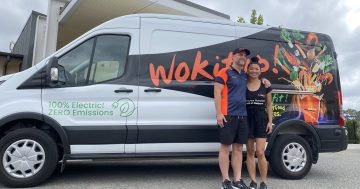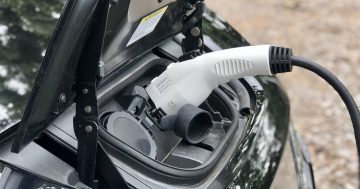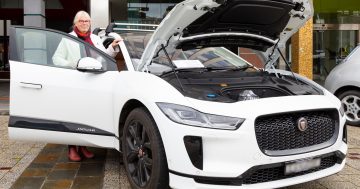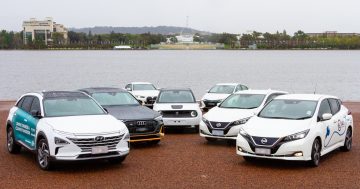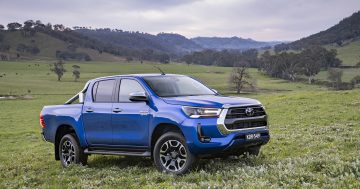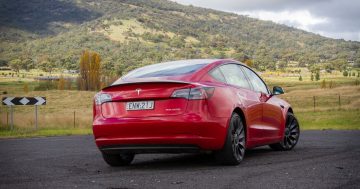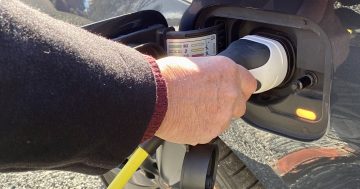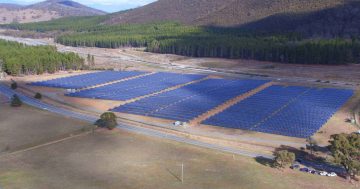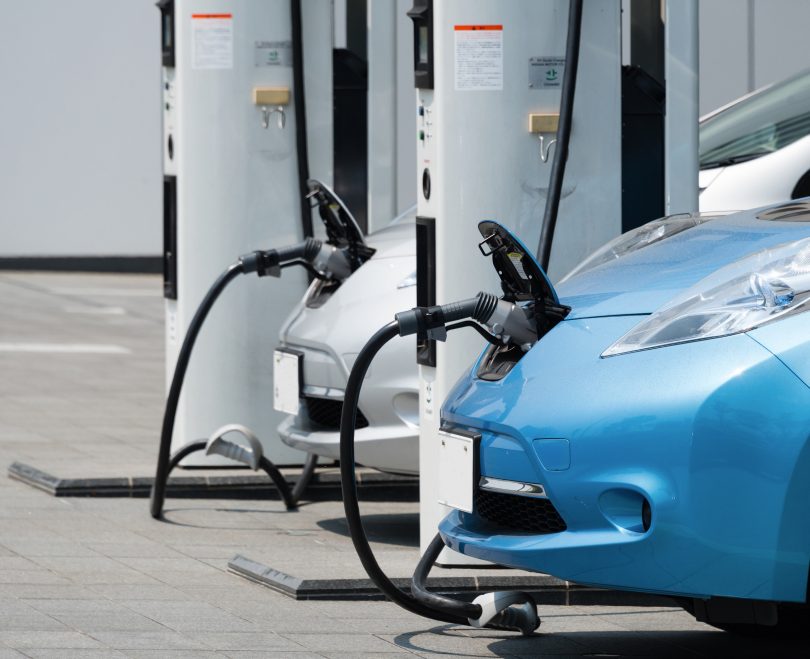
The road ahead: The ACT Government is preparing the way for zero emissions driving. Photos: Supplied.
All new multi-unit and mixed use developments in the ACT will be required to install vehicle charge points and all newly leased Government vehicles will be emissions free from 2020-21 as part of a suite of measures designed to drive the Territory’s transition to electric vehicles and bikes announced today (Monday).
The Transition to Zero Emissions Vehicles Action Plan 2018-2021, announced by Minister for Climate Change and Sustainability Shane Rattenbury and Minister for Transport and City Services Meegan Fitzharris, also includes working with local and state governments on the installation of charging stations on major routes to and from Canberra, including those to Sydney and coastal areas.
Under the plan, owners of zero emission vehicles, who already enjoy certain benefits, will be able to drive in transit lanes, from later in 2018 until 2023.
The Government will also investigate incentives to encourage the use of electric bikes in place of cars.
The Parking and Vehicle Access General Code will be amended to require all new multi-unit and mixed use developments to have charge points.
At least 50 per cent of all newly leased ACT Government fleet passenger vehicles will be zero emission vehicles in 2019-20 (where fit for purpose) and from 2020-21 all newly leased ACT Government passenger fleet vehicles will be zero emission vehicles (where fit for purpose).
The Government will also assess whether the installation of covered car parks with solar powered vehicle charging stations is feasible.
Parking and traffic regulations will be reviewed to ensure that priorities offered to zero emission vehicles can be enforced, and to provide specific zero emission vehicle number plates for easy identification and enforcement of zero emission vehicle related regulations such as ensuring only zero emission vehicles park and charge in allocated charging spaces.
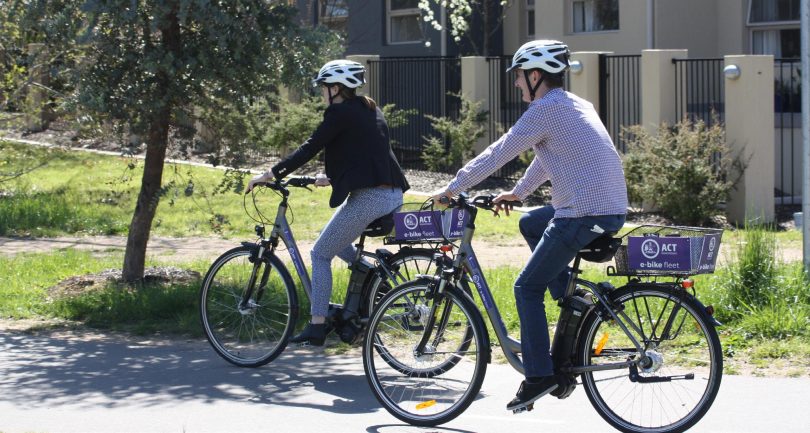
Part of the ACT Government e-bike fleet.
The Government will look at incentives to encourage the use of electric bikes such as more secure bike parking and more bike charging stations, as well as amending tax arrangements to allow ACT Government staff to salary sacrifice for an electric bike.
It will also investigate the potential use of electric vehicle batteries to support the electricity grid at times of peak demand, and support new and innovative businesses in the zero emissions vehicles sector to maximise job creation and economic development in the ACT.
Mr Rattenbury said the Action Plan would further enhance the ACT Government’s reputation as a world leader in sustainability by encouraging the use of electric vehicles and e-bikes.
“Electric vehicle ownership in Canberra has many benefits including less air and noise pollution, lower running costs, zero stamp duty and a 20 per cent discount on registration fees. Electric bikes also help make it easier and cheaper for people to get around our city while getting exercise at the same time,” he said.
“By 2020 the ACT will be powered by 100 per cent renewable electricity, meaning our biggest source of greenhouse gas emissions – at over 60 per cent– will be transport.”
The Ministers said the Action Plan would help ensure the ACT was at the forefront of encouraging electric vehicle uptake.
“We already have generous financial incentives for the purchase and registration of zero emission vehicles, we’re undertaking a trial of two battery electric buses and a hybrid bus running on diesel, we have an e-bike fleet for ACT public servants to use and we’re facilitating installation of charging points across the city,” they said.
“This Action Plan will feed into the ACT’s next transport and climate change strategies and ensure we are well placed in the increasing global shift to zero emissions vehicles.”
The Electric Vehicle Council of Australia welcomed the ACT’s continued leadership on delivering policy to support the transition to electric vehicles.
Electric Vehicle Council CEO Behyad Jafari said the plan would support Australia’s emerging EV industry, provide greater access to electric vehicles for ACT residents, and set the groundwork for greater adoption into the future.
Mr Jafari said the ACT had built on its existing policy, and was leading by example.
“The ACT is already leading the Australian market in terms of per capita uptake rates of electric vehicles and deployment of charging infrastructure. This is driven by their existing stamp duty exemption and registration discounts for zero emission vehicles. The Action Plan released today will see the ACT cement their position as policy leaders on electric vehicles in Australia,” he said.
“The uptake of electric vehicles in the ACT is not only required to deliver on the territory’s emission reduction targets, but it will also reduce the cost of transportation for residents. The uptake of electric vehicles also presents great opportunities for the development of new businesses and jobs in Australia.
“The ACT is now at the forefront of supportive policy environments for the electric vehicle industry in Australia.”
The NRMA, which has been advocating the uptake of electric vehicles in Australia, also welcomed the plan.
NRMA local Director Kate Lundy said the ACT Government had launched the most comprehensive action plan by any government in Australia to date.
“There is a global transition towards this technology and Australia is not immune. However, until now governments have failed to grasp the significance of these changes and properly prepare Australia so that we can reap the economic, environmental and societal benefits of an electric vehicle future,” Ms Lundy said.
The NRMA has committed $10 million to building Australia’s largest fast-charging network to support the electrification of the transport sector in NSW and the ACT.
The Action Plan says that in 2017, the United Kingdom and France announced their intention to ban the sale of new petrol and diesel cars by 2040, with all cars to be fully electric. Scotland, India, China, Norway and the Netherlands have followed suit.
It says car manufacturers are also making the shift to zero emissions vehicles, with all Volvo cars to be electric or hybrid from 2019 and General Motors announcing an intention to phase out petrol and diesel powered vehicles for an ‘all-electric future’.
Zero emission vehicles do not emit any greenhouse gas emissions, and includes plug-in hybrid electric, battery electric and hydrogen fuel cell electric cars, as well as electric bikes.
The existing network of public charging points across the ACT and region can be found on the website www.plugshare.com.
What do you think of these new initiatives? Share your thoughts with us by commenting below.












